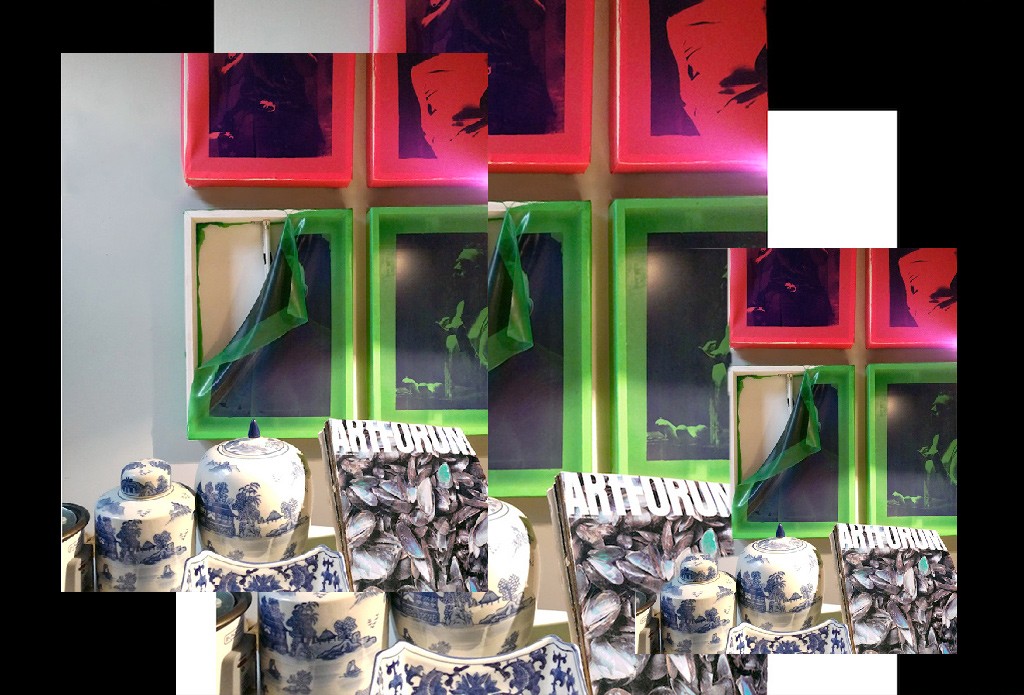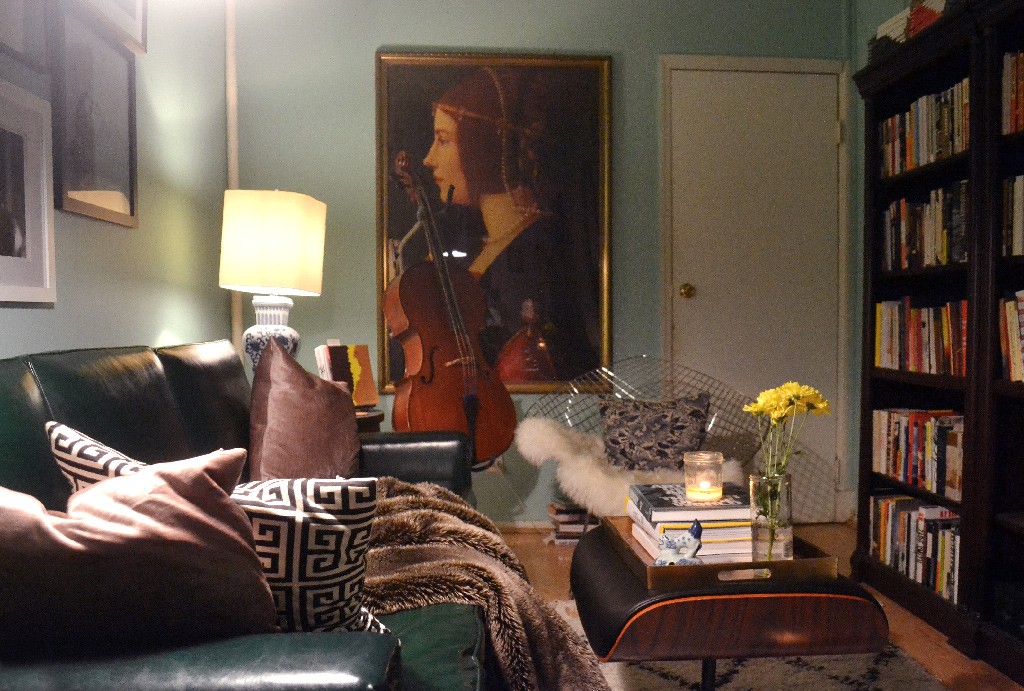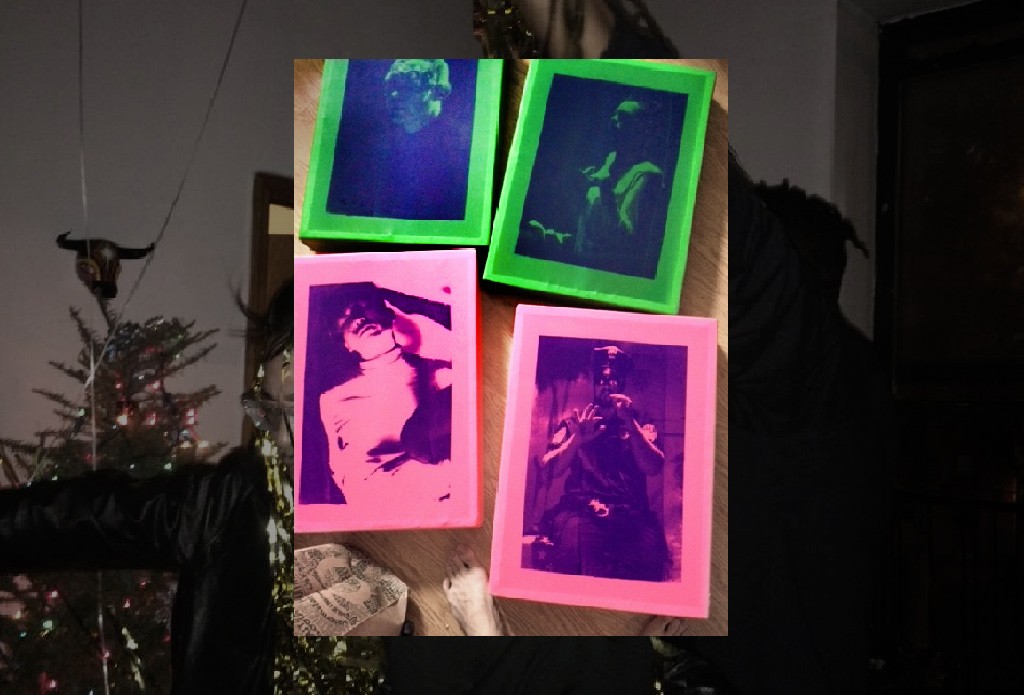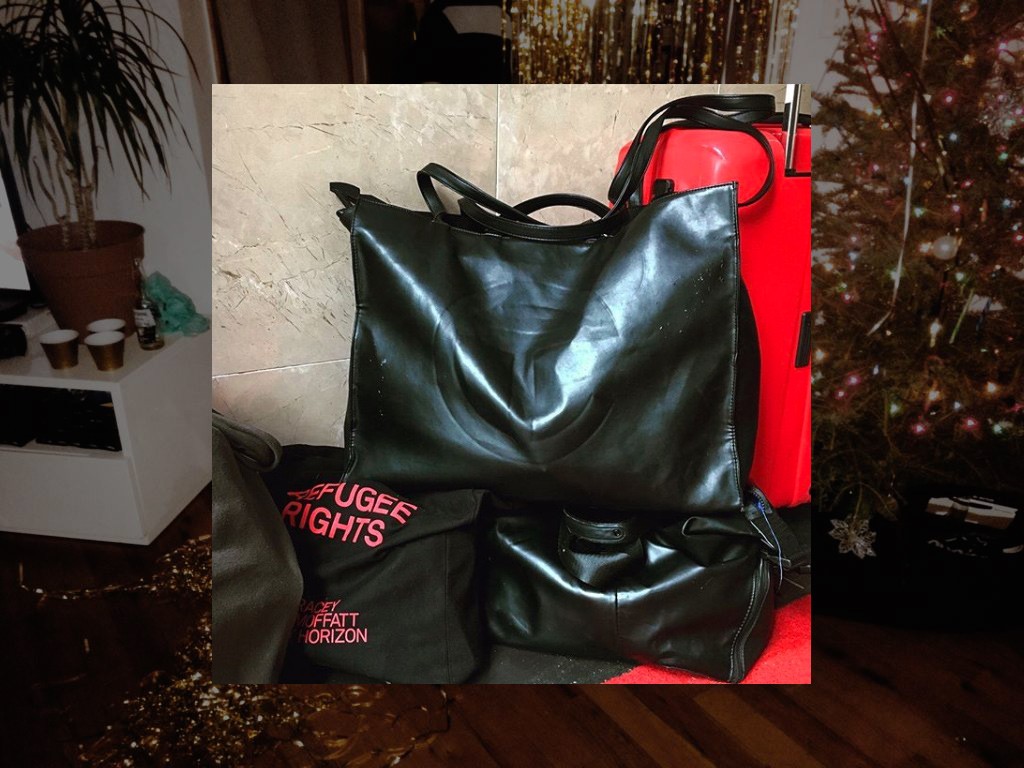Geoffrey Mak

THE MORNING my niece was born, I was in Berlin in the middle of an overdose. I’d asked my friend if I could stay with him because I thought if I were alone for the next twelve hours, I might kill myself.
The whole thing is a blur: the month, maybe the entire summer. I remember I had just flown back from the Biennale, on assignment; did not have a bad time at all but was sickened by the thought of returning to Berlin on a Monday morning alone, to my one-room apartment. I lived by the canal. I was spoiled. I’m not even trying to defend the moment. As I try to reconstruct for myself the emotional narrative of the time, this period now seems infantile and excessive to me.
Maybe I thought this was how fags did it: art, parties, sudden death. Nobody ever teaches you how to die. Nobody teaches you how to fuck either, which I had not been doing much of that year, nor for some time by that point. Four years earlier, I had been sexually assaulted. It happened in New York on a Sunday afternoon. The man was homeless, but maybe that doesn’t even matter. The encounter, in any case, would “take me out of the game” for an indefinite amount of time and there was nothing I could to speed up this sentence but wait.
Like jail time. What had I been doing those four years? For one, I had been working in luxury advertising on East 57th Street, which manufactured the very myth that if you aren’t fucking then you aren’t doing much of anything at all. Part of the allure of those years in the fashion world was being able to walk in as the smartest person in the room, and the most invisible. Then there was the therapy. Maybe it would’ve been fine if I had known, for sure, that my sexual convalescence would last just one more year. Except I didn’t know this for sure. And so instead of continuing to not know, I decided I could drug myself into oblivion: the sort of total passivity to the death drive that I wanted from sex but could not at the time negotiate for myself yet could very reliably engineer with drugs in the privacy of my own four walls.
To be real, taking drugs let me feel in control of my life at a time when the elements that, for me, had made life make sense were falling away, one after another. While drugs simulate and exacerbate exactly the conditions I was trying to escape, they do so in a way that’s disguised as pleasure. And if you can buy into the pleasure, you can live a lot longer and at half the effort until the pleasure kills you and isn’t that how we all want to die? “You’re the only one I know who actually likes K-holes,” a friend once said to me, which was his way of asking why I hated myself. The answer I never gave to the question he hadn't spoken: instead of victimhood, I preferred to self-engineer the theater of my own debasement; to be the master who alone could obscure his own role in the design.
Except I didn’t really hate myself, I was just tired. Tired of talking to people who had gone through worse (which made me feel like I was overreacting) or to people who did not understand the gravity of what did happen to me (which made me feel like I was overreacting) or to people who suggested I was overreacting. Even people who just said “that’s horrific” irritated me, because it wasn’t that horrific compared to the two friends—male, female—who had been gang-raped and hospitalized and were gorgeous enough to tell me they knew what I was going through but in fact just made me feel stupid.
Immediately after the assault I tried to steamroll over the incident, soup it up as some New York moment—in trauma all thoughts are ad hoc—and I tried having as much sex as I could. And when it didn’t work, when I couldn’t perform or do much of anything at all in bed, frigid in paranoia or sudden catatonia, I knew it was going to be this way for a very long time.

Since I was not physically injured so much as violated, the trauma persisted psychologically along with the fantasy that since it was “all in my head,” I could reason my way out. I'd tell myself that there was something that could have been done. I blamed myself for letting the man escalate as far as he did. I blamed myself for not wanting it more; for not turning the entire episode into one of seduction on my part and making this into a narrative of sexual ownership. Latent in the relative lack of assault stories from adult gay men is the idea that we must have wanted it to a certain degree. Maybe just a little bit. It was a truly insane train of thought and I knew it the whole time but if this is what I had to work with, I would. I was fleeing a burning house.
What I assumed about the man who assaulted me: that he was older, that he was homeless and that, at the end of the day, I had more privilege than he ever would. (In actuality, I knew nothing about him.) Even directly after it happened, I didn't hate him. And I waited an entire month before calling the public facility to report that the incident had occurred “on the premises.” What a dirty way to put it. “Don’t you want to protect others who might not be safe in that space?” a friend had asked me and, when I didn’t give a fuck, reframed as “Don’t you want the facility to feel guilty about not protecting you?” This I found more convincing.
It would be months before I brought up the assault with my therapist. And when I did and he said “it’s not your fault” I cried for an hour. Some months later, maybe a year, I told him that I could only jack off to fantasies about rape: suicidal fantasies that would manifest as getting my head bashed in with a baseball bat. Sometimes when you really don’t know what it is that you desire or how you can bring your desire to the surface, you dream that someone or some thing will come along and make all those decisions for you so you don’t have to do anything at all.
Being as fucked up as I was, underground darkrooms felt safe somehow: these maze-like constructions designed for anonymous sex. In Berlin, I’d find them all over the city: in the basements of clubs or at bathhouses where, in near-total darkness, I'd wander through turns looking for someone to suck. In the all-bets-off economy of cruising, wokeness doesn’t save you. Asian men rank at the bottom of the sexual hierarchy. The virtual nonexistence of Asian men in gay porn tracks with the desert of desire I've detected in other men, white or otherwise, who've seen me more as a woman—an aesthetically pleasing object they appreciate, but could not imagine fucking. For them, the erotics did not compute. These men would either dismiss or ignore me. Or at best they might assume, because of my face, that I was hungry to be used, which honestly was accurate because I did want to be used and then disposed. Alienated from my own desire, I no longer had control over my body (which no longer responded when others tried to pleasure it) and so I wanted my body—and my pleasure—ignored entirely. If I couldn’t command it to do what I wanted, then I would deny it, starve it out, or force it into a vessel for service.
Once, someone asked if he and some friends could take turns fucking me on a leather sling. I didn’t go through with it, though I wish I had. I wish I did everything differently, really. Part of the nightly tape reel that runs in your head, playing back all the scenarios in which you could’ve done things differently, is the illusion that your fate was in your own hands the whole time; that you could have arrested it from all the arbitrary forces that end up changing your life, like the sudden interest of the homeless man wearing a fisherman's hat with beer on his breath who suggested I follow him to the bathroom and would not take no for an answer.
Before the assault, I’d had a certain idea about where my writing was going and I didn’t want this event to define my career. I didn’t want to be called “brave” or “healing” or “necessary.” So I stopped writing.

INSTEAD, I LET MYSELF FALL away from the other writers my age. They all seemed so self-assured and empowered. But moreover, their writing felt light and whimsical, occupied either by New Wave fabulism or soul-edifying immigrant narratives, and generally lacked any sense of the rancid sadism I now carried with me everywhere I went. Meanwhile, the publishing world turned down my writing for being too detached, too extreme (or “sociopathic” as a Big Five editor once described it to me in an interview). Plus, I hated the whole “Brooklyn writer” aesthetic. Writers who wore fedoras and desert boots and button-down shirts, the sort of tote-bag carrying Brooklynites who congregated at n+1 parties and readings at McNally Jackson; those who were immersed in identity politics and would post bubble-bath selfies from #selfcare Sundays; those who dropped clickbait bastardizations of Barthes’s Mythologies into their thinkpieces on pop culture items such as Solange's latest EP or the new season of RuPaul’s Drag Race. The novelists they loved were Junot Diaz, Zadie Smith, Marlon James, and Chimamanda Ngozi Adichie: heavyweights who also belonged to a crop of chic, nonwhite authors with careers that blossomed in an era when Obama had won the Nobel Prize. Perhaps because my Chinese identity tended to signify, in these circles, as white-adjacent—not light enough to be white but not dark enough to be sufficiently “of color”—I never found myself totally at home there, nor did I really see this scene show up at the art openings and warehouse raves and fashion industry after parties where I was increasingly spending my weekends.
The people I hung out with centered around Happyfun Hideaway, where the bartenders sometimes gave me free shots at the beginning of their shifts, or at The Spectrum on Montrose where the doorperson let me in for free. The scene was clubby, queer, and messy. It had a diversity I hadn’t found in the literary world. At the club, people were identified by their race, sure, but more by their look, their attitude, their drama, their performance. It was about surface, but it was not superficial. We had our ambassadors, those who came out of our scene and made it big: Richard Kennedy, Jacolby Satterwhite, Colin Self, Shyboi. I saw Arca sometimes come to these parties, same with Casey Spooner. But they weren’t from us; they came from somewhere else. Nobody came for the sound system because the sound system was shit. And the DJs didn’t care, often playing 128kbps mp3s or YouTube rips, “precarious” audio files homespun out of the actually precarious, improvisatory parties in which our queerness thrived. We worked with what we had: reappropriated Top-40 club hits, deconstructed with scattered beats, shattered glass, or chop-and-screwed vocals on loop, a sound that journalists eventually termed “Deconstructed Club,” which became like “hipster”—a term everyone would immediately disavow upon being described as such.
House of Ladosha, trailer for "This Is Ur Brain," 2017
At the time, House of Ladosha—a collective of performance artists, drag performers, and club luminaries—floated in and out of the scene with the air of monarchs. The month House of Ladosha occupied a full spread in Artforum, I remember thinking, “Fair and correct.” I met them through my friend Yan Sze, a lesbian from Hong Kong who went by YSL Ladosha. Nowhere else in New York, at least not that I’d transited, did I see another queer Chinese person who was thriving like Yan Sze. Honestly, I adored her. Before the collective exhibited at places like MoMA and the New Museum, Yan Sze invited me to their group show “THIS IS UR BRAIN” at BHQFU, in Red Hook. It was a warehouse setup that was dark, with a pile of TVs casting pale lights at the center. On the concrete walls, green and pink neon light boxes lit up screen prints of the various Ladosha members as if Golden Age star system promotional stills. At the entrance to the show was a print that indexes their coded, improvisatory lexicon.
H A M questionmark What was the spiral?
LEGIT chew—ing—knee—caps—off
From the show, I managed to inherit four of Yan Sze's latex lightbox portraits of Ladosha members. It was the only original art I'd ever owned. I kept them hung over my dining room table. But because I wasn’t schooled in how latex works, I never oiled the portraits and didn’t shield them from the sun. Then one day while I was in Berlin, a friend who was housesitting emailed me a picture that showed all four works torn by the sun, along with the message “Please advise?”
The portrait I had of the DJ Michael Magnan showed him dressed in a cop’s uniform and sunglasses while painting his nails—a subversion of Robert Morris’s Castelli-Sonnabend poster, in which Morris appropriates 1960s gay culture, appearing as a muscled cop, shirtless, with chains around his neck (photo by Rosiland Krauss). This was a time when homosexual acts were both criminalized and lazily used by the artworld as a byword for counterculture. Yet in reclaiming Morris’s pose for his own portrait, Magnan (who, unlike Morris, is gay), queers the semiotics of police brutality (presented now in the Black Lives Matter era) with the delicacy and precision of bristles on cartilage.
Michael was the most prolific member of the collective, often DJ’ing gay afters where, around 4 or 6am, ball crashes would go off and gorgeous, skinny black boys would spontaneously circle the dance floor and vogue in poses onto the floor.

Sometimes this happened at Shock Value, a party described as a “nightlife gender project” thrown by Juliana Huxtable, who was a model and DJ before Stuart Comer invited her to perform at MoMA. People were drawn to her, because she managed to flourish at the very chiasmus of disadvantage: queer, Black, trans, intersex. She had thick, long braids, blue lipstick, and spoke in a low raspy voice. Because she was tall, she moved like a black glacier, quietly in the night, from one part of the room to the next. Whenever I saw her, she'd be with Riley Hooker and Neon Christina (from Ladosha) arriving at the final hours of a party and looking fresh, just stopping by to say hi to the promoter who put them on list. When she talked to you, she didn’t hold her chin up in arrogance but dipped her jaw down, eyebrows low, eyes looking up at you, conspiratorially, which was a test because she never let you know if you were in on the conspiracy.
Those years were typified by these aesthetic moments, like the Telfar party that took place at White Castle or the Hood By Air fashion show that opened with a soundtrack by Total Freedom, with sounds he'd made while sucking his boyfriend’s dick.
Then there was the New Years party Yan Sze threw every year, where her friend Ojay and I snorted lines of K in the bedroom and then tore golden streamers from the windows, wrapped them around our heads and started strutting up and down the living room. My queers were screeching that night. Ojay was better known by his stage persona Zebra Katz, who got flown to Paris to soundtrack the Rick Owens runway show in the wake of his cult hit “Ima Read.” The track's lyrics might as well serve as an anthem of this artworld club life I’m talking about, which, as the wisdom literature of urban ingenuity, incarnated the reigning ethos of make-it-fashion but make-it-theory:
Ima school that bitch
Ima take that bitch to college
Ima give that bitch some knowledge
I loved the scene, and loved it hard. If, at sex parties, my race made me invisible, I found the opposite to be true at the club. It was important for me to learn how to dance, because I demanded to be seen. In Jennie Livingston’s ball culture documentary, Paris is Burning, the choreographer Willi Ninja’s apartment is shown decorated with porcelain statues from Asia. He even uses his namesake “ninja” to describe his moves, and at one point says “I would really like to take my whole House and go to Japan and have them accept it there.” These cultural coordinates were far more sophisticated than anything I could easily navigate. Through the ball culture’s self-conscious exotification of East Asian culture in the '80s, I learned to come into Asian culture by performing it at the club. I learned to use my hands, which are large like Chinese fans attached at the wrists that I could flutter around my head. At the club, I never knew what I looked like—except at Spectrum, where (because of all the mirrors) I could watch my form and do some serious damage on the floor. When the strobes came on, I pretended not to notice people watching. It was exhilarating, because nowhere outside the club did I ever command this attention. It was the height of the culture wars and I had learned how to vogue, which I found funny and passive aggressive. Whenever people asked me at the club if I was voguing, I would say I’m not appropriating anyone’s fucking culture, I’m doing Tai-Chi. Obviously, I was carrying.
—
BUT I'M GETTING AHEAD of myself here. Clearly, I don’t want to talk about the assault anymore. Self-pity gets tiring. How do you believe in your own value after you’ve been devalued by trauma? I act like my friends weren’t there to help me. What a disservice to all the people who were there.
This is my tribute to all those who knew but didn’t know, who just got it, who didn’t have to ask. Who, instead, went shopping with me for skirts at the kleidermarkt; who answered my crisis texts; took care of the cats when I was spiraling; who sat me down and said all my self-diagnosed psychoses were capitalist control systems.
Who taught me to have outfit changes before and after the DJ set. Who said a majority of gay people don’t even do anal penetration because wasn’t the whole point of the queer project to reject the hetero-indoctrination of intercourse as procreation defined by basic-ass Christians who prioritize progeny over pleasure?
You were the ones who recorded us talking for four hours straight before I moved to Berlin and then got Celestial Trax to sample it years later in Copenhagen. Before then, I hated my voice because it sounds faggy. Now I love my voice because it sounds faggy. Self-love is something you have to be shown, and you showed me how.
I’m being serious, it isn’t that bad. My life. When I started going to Berlin, I had four goodbye parties a year for four years and no one ever called me out. One of the perks of working in luxury advertising is I would bag free product—fragrances, tinted moisturizer for every skin tone—and at house parties, after the clock struck midnight, I’d bring the bag out of the closet and make it Christmas for all my queers and fashion-hos in Bushwick. Sorry, I don’t want anyone thinking I was a privileged faggot having too much fun, even though I just said so and have the pictures to prove it.
I promise I was engaged in political activism. My feminism was hosting “Ladies Night” where all my girlfriends went to a gallery opening of a mid-career female artist, and then had dinner and talked about Catherine Opie and Hito Steyerl, and if someone accidentally brought up a male artist we’d smile and be like, “oh, I’m not familiar”—(men were allowed to attend these dinners if they were models, solely to provide reactions to other people’s stories and decorate the table). I never had that Asian party I kept talking about, because all y’all were too busy flying around the fucking world, and if the whole family couldn’t be there at the same time, then what was the point? The closest we ever came to one was Yngve Holen’s studio party, which was technically happening for some other reason but became irrelevant once our whole Asian crew showed up and occupied the place. Why Be and Mobilegirl were doing B2B, and we snorted lines up and down the stairwell and danced on the tables in front of the DJ booth and, because the cops shut down the party, were all in bed by three and got shit done the next day. Who ever gave us permission to be so extra?

I don’t know why I’m telling you all of this. Hey, sometimes life was bad and sometimes it wasn’t, and sometimes it just was. Basic presence. There isn't a “point” to this, at least not any more than there is ever a point to suffering—or to life itself. Your existence justifies itself, you don’t need a reason. That’s the thing: you never need a reason. Anyone seriously addicted to sedatives knows the effect, like a coup de grâce, when the shimmer of dissociation rains down and one’s life becomes a cut-up film strip, not only in the sense of observing it as if it had nothing to do with you, but to see your life’s events linked purely through a coincidental logic, sometimes so totally dissociated that the only thing events have in common is that they happened.
Which is how I got over it; “healed” or whatever. I don’t know when, but this period I’m talking about did eventually end—I woke up one day, and realized it was over, or even had been over for some time. And for a while. Life went on, I went on. My niece was born and she was named after my grandmother. You try to make meaning out of the events until it becomes too painful, and then you take it as it is. Tell yourself that. Just keep going babes, you’re on the right track. For most of what I remember from this period, I was so happy I could die.
Geoffrey Mak is a writer based in Berlin.
Published: 17 October 2019